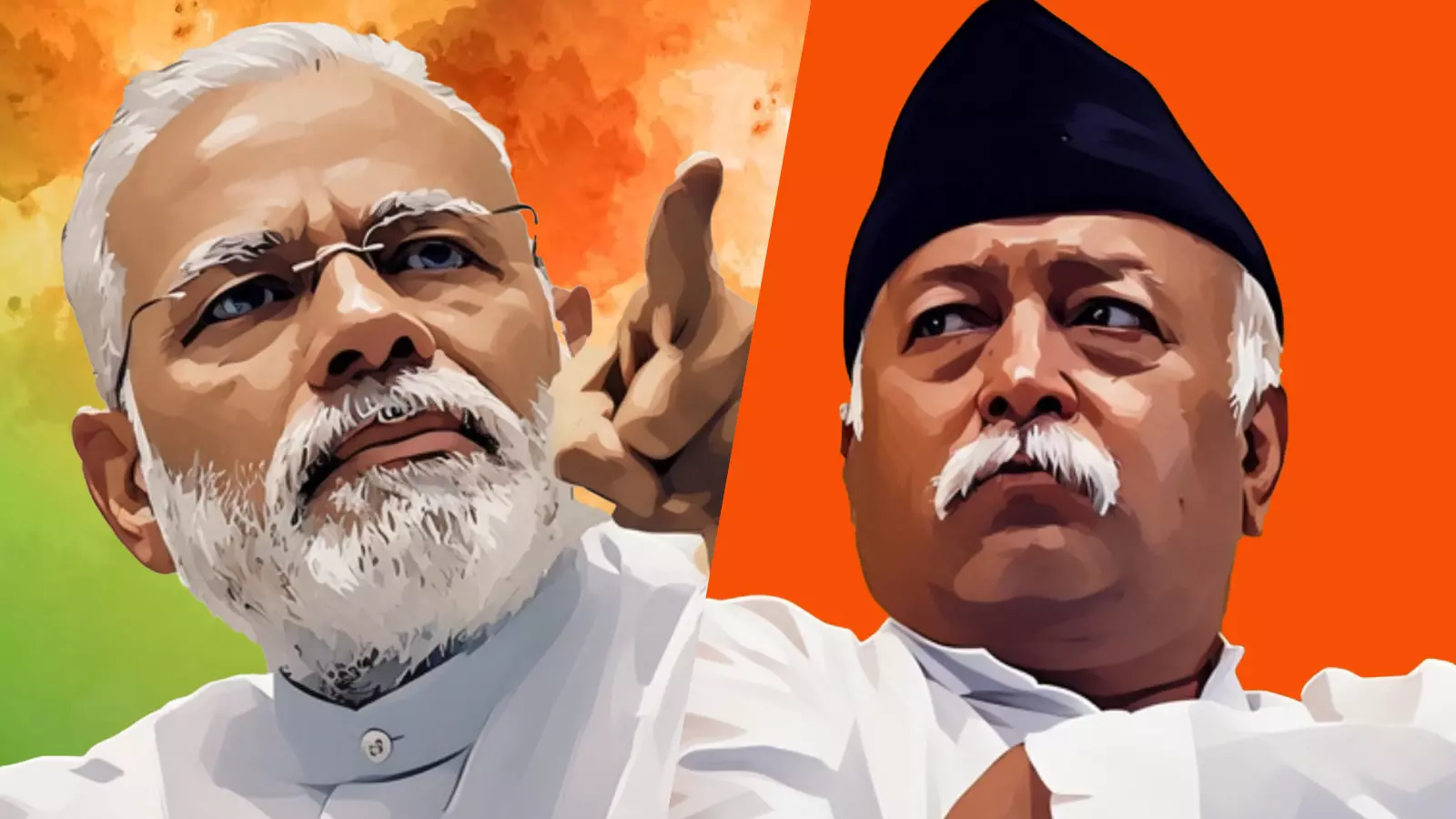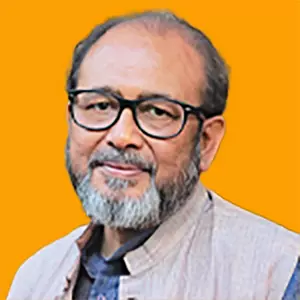
- Home
- India
- World
- Premium
- THE FEDERAL SPECIAL
- Analysis
- States
- Perspective
- Videos
- Sports
- Education
- Entertainment
- Elections
- Features
- Health
- Business
- Series
- In memoriam: Sheikh Mujibur Rahman
- Bishnoi's Men
- NEET TANGLE
- Economy Series
- Earth Day
- Kashmir’s Frozen Turbulence
- India@75
- The legend of Ramjanmabhoomi
- Liberalisation@30
- How to tame a dragon
- Celebrating biodiversity
- Farm Matters
- 50 days of solitude
- Bringing Migrants Home
- Budget 2020
- Jharkhand Votes
- The Federal Investigates
- The Federal Impact
- Vanishing Sand
- Gandhi @ 150
- Andhra Today
- Field report
- Operation Gulmarg
- Pandemic @1 Mn in India
- The Federal Year-End
- The Zero Year
- Science
- Brand studio
- Newsletter
- Elections 2024
- Events
- Home
- IndiaIndia
- World
- Analysis
- StatesStates
- PerspectivePerspective
- VideosVideos
- Sports
- Education
- Entertainment
- ElectionsElections
- Features
- Health
- BusinessBusiness
- Premium
- Loading...
Premium - Events

Both Modi and Bhagwat will turn 75; the RSS chief, who no longer ‘needs’ the PM for his Hindutva agenda, may prod the elephant in the room — retirement age
Prime Minister Narendra Modi, who has confidently stated in public that the Universe has kept him hale and healthy just so he can lead India to its Amrit Kaal, till 2047, has to reckon with a hurdle — in the form of a man just six days older than him.
While Modi turns 75 on September 17, 2025, RSS chief Mohan Bhagwat reaches the milestone age on September 11.
The two, formerly comrades-in-arms, have not seen eye to eye in recent years, and Bhagwat may choose their birthdays to up the ante. He could lay down office or at least name a successor, as has been the convention in the RSS, the BJP’s ideological fountainhead.
Questions will be implicitly posed: Shouldn’t Modi follow suit? Shouldn’t he at least talk about retirement?
Persistent questions
Modi has taken the trouble to inform the citizenry that his retirement is nowhere in the offing. His close aide, Union Home Minister Amit Shah, has gladly endorsed this. However, the questions may need to be posed again because of the internal knottiness of the Sangh Parivar.
After all, the Parivar, especially the BJP, is big on retirement and cultivating the next generation of leaders. Everyone is conscious of this even if they don’t rake it publicly. For Modi, it’s the elephant in the room.
Also read | Close to 75, Modi in no hurry to quit, eager to secure place in history
If Bhagwat makes a grand gesture and states that he would step down next year, once the RSS’s centenary year celebrations are done, it may force Modi’s arm to address said elephant.
What RSS wants
The key clearly will be in Bhagwat’s hand. There is no knowing if he will continue firing verbal volleys which, while not targeted at anyone, do not disguise the intention.
From when he became Gujarat Chief Minister, Modi has kept the RSS and its leaders at arm’s length, disallowing them to advise him on governance and policy. If the RSS did not appreciate his work style, it did not rock the boat because he pursued its ideological goals — of taking Hindutva to the masses and delivering on contentious, long-pending objectives including building the Ram temple in Ayodhya and abrogating Article 370.
But, never did the RSS endorse Modi’s proclivity for self-love and promoting his personality cult. A long-standing principle within the Sangh Parivar is that the vyakti (individual) is always secondary to sangathan (organisation); Modi has violated this consistently.
War of words
It is now evident that the RSS’s lack of enthusiasm during campaigning for the general election was triggered by the twin slogans which they felt were an embodiment of his conceit: ‘Modi ki guarantee’ (‘Modi’s Guarantee’) and ‘Abki baar, chaar sau paar’ (‘This time we will cross the tally of 400’).
RSS functionaries, asked why they were not actively campaigning, replied tongue-in-cheek: “If Modi’s taking the guarantee of ensuring victory, what is the reason for us to campaign?” Another reply left little ambiguity – “Let’s see what tally they end up with without us joining the campaign.”
Despite visible RSS disinterest in electioneering, BJP president JP Nadda made no effort to appease the RSS leadership and made the egocentric claim that the BJP ‘did not need’ the RSS anymore as the party was ‘capable’ enough and that the RSS was a ‘purely ideological’ organisation.
Mending fences
The Lok Sabha verdict amply established that the RSS network is still ‘needed’ by the BJP. Eventually, the BJP made the first move towards rapprochement – Nadda and BJP organising secretary BL Santosh went all the way to Palakkad, Kerala to attend the Akhil Bharatiya Samanway Baithak in August.
Also read | Mohan Bhagwat's Vijayadashami speech: Duality at best, duplicity at worst
This led to the RSS returning to campaign for the BJP in Haryana and later in Maharashtra and Jharkhand. Bhagwat too maintained silence during the elections.
Importantly, the BJP’s victories in Haryana and Maharashtra were secured without extensive campaigning by Modi. The RSS views these victories as being of the Sangathan and the Hindutva vichardhara (thinking).
Reduced dependency
Despite being opposed to vyakti pujan (unabashed idolisation of one individual), the RSS knew the importance of individuals for securing mass support. The altered sense post the latest round of polls is that support for Hindutva has crossed the threshold level and this reduces dependency on any individual, even Modi.
If this sentiment gathers ground, it is possible for the RSS brass to conclude that there is no further need for a centralising figure like Modi — ‘any’ leader loyal to Nagpur would do.
During the Maharashtra elections, it was evident that Devendra Fadnavis was the chosen man of the RSS. Moreover, at its national executive in Mathura in October, the Sangh bosses lent complete support to Uttar Pradesh Chief Minister Yogi Adityanath. They backed his contentious majoritarian statement made in the context of Bangladesh: ‘Batenge to katenge’ (‘We will get slaughtered if we are disunited’), which was evolved into the slogan for the Maharashtra polls — ‘Ek hain toh safe hain’ (‘We are safe if united’).
Election heft
The RSS has unquestionably demonstrated to the BJP, especially Modi, its electoral capacity. In the changed equation between the two, it is likely that the next BJP president will be selected only after due consultation with the RSS leadership.
But, Modi is no political greenhorn and is equally sharp and astute, with tremendous desire to wield political power. He wants no seat other than the driver’s.
After more than a decade when the RSS was relegated to the back seat, the task of politically tracking the Sangh Parivar will be challenging and exciting.
Watch | Everything went ‘right’ for Mahayuti, ‘wrong’ for MVA: Rahul Verma
Within the RSS, there is no 75-year retirement code – Bhagwat’s three predecessors, KS Sudarshan, Rajendra Singh (Rajju Bhaiyya) and Balasaheb Deoras, the only sarsanghchalaks (chiefs) not to die in harness, retired from office at 78-79.
Question of convenience
In the BJP, however, this rule has existed per convenience. For instance, when Modi, after leading the BJP to its famous victory in 2014, did not induct party veterans LK Advani and Murli Manohar Joshi into the Union Council of Ministers because they were 75-plus. Instead, they were pushed into the newly-constituted and inconsequential Margdarshak Mandal, which was never convened.
Much has happened since then within the BJP with regard to this age-code. It was waived when required and adhered to when anyone had to be ‘forcibly’ retired. Unambiguously, ‘convenience’ has been the guiding star.
For instance, Anandiben Patel put in her papers in August 2016 as Gujarat Chief Minister three months before hitting 75. Yet, she was later rehabilitated as the Governor of Uttar Pradesh, where Modi required a loyalist to keep track of developments.
Former Union Minister Santosh Gangwar, denied a ticket in this year’s polls from Bareilly, Uttar Pradesh, was later rehabilitated as Governor of Jharkhand, again a state where the PM could use alert and loyal eyes and ears.
On the other hand, party strongman in Karnataka, BS Yediyurappa, was over 76 when he was made Chief Minister in 2019. He remained in office till well past 78.
Also read | Trade unions’ rejection of UPS latest reminder of Modi’s lowered stature
Numerous instances
There are numerous other instances where this ‘regulation’ was applied for those Modi wanted out, and waived when someone’s presence or continuance was required for the party leadership.
Last year, Modi appeared to have waived the rule for himself when he expressed confidence about serving out his third tenure despite being 79 in 2029, when the term of this Lok Sabha is scheduled to end.
Shah immediately endorsed his words. Modi would continue as PM for the full term, he said, adding there was no retirement stipulation in the BJP’s constitution.
Let us recall what Shah said ahead of the 2019 Lok Sabha polls, when more than 20 BJP veterans, including Advani, Joshi, Sumitra Mahajan and Kalraj Mishra, were denied party tickets. When quizzed, Shah cited the fact that they had crossed 75. Previously a Gujarat MLA and thereafter a Rajya Sabha MP, Shah bagged Advani’s Lok Sabha ticket from Ahmedabad.
Watch | Is RSS pulling the rug from under Modi's feet?
Kejriwal’s ‘prediction’
In May, former Delhi Chief Minister and Aam Aadmi Party chief Arvind Kejriwal spoke of the elephant in the room.
Shortly after his release from Tihar Jail on interim bail, he contended that casting one’s lot with Modi in the 2024 Lok Sabha election would be tantamount to voting for Amit Shah as PM. This would be because Modi would retire from politics on turning 75 in September 2025 and Shah would be successor.
Shah, contradicting his 2019 stance, insisted that Modi would not step down.
Quite clearly, ‘retirement at 75’ is not an officially accepted credo of the BJP. Instead, it is a ‘norm’ which is selectively ‘enforced’.
Only time will tell
A year after the phase of discord began, there is little clarity on whether the RSS-Modi equation will get resolved through 2025. Modi, more than anyone else, knows that the RSS leaders are not fixated on their tenure like he is. This gives them the liberty to take decisions that may result in short-term setbacks.
Yet, nothing can be stated definitively at this juncture. Nothing can also be ruled out. Time will tell whose Amrit Kaal this eventually turns out to be. But surely, Modi has not faced such a grave challenge before, from without or within.
(The Federal seeks to present views and opinions from all sides of the spectrum. The information, ideas or opinions in the article are of the author and do not necessarily reflect the views of The Federal.)


